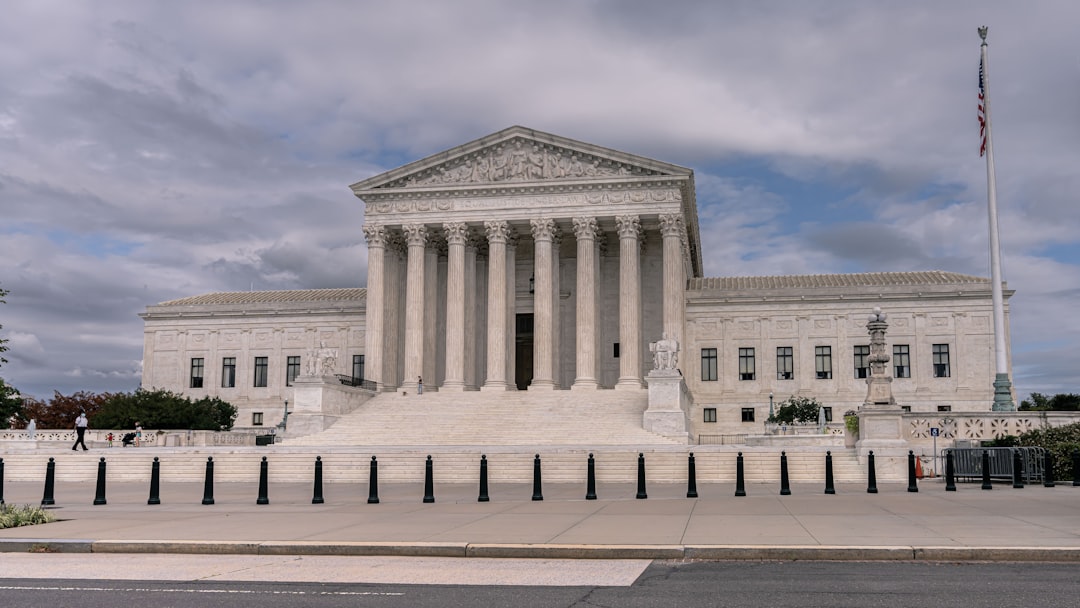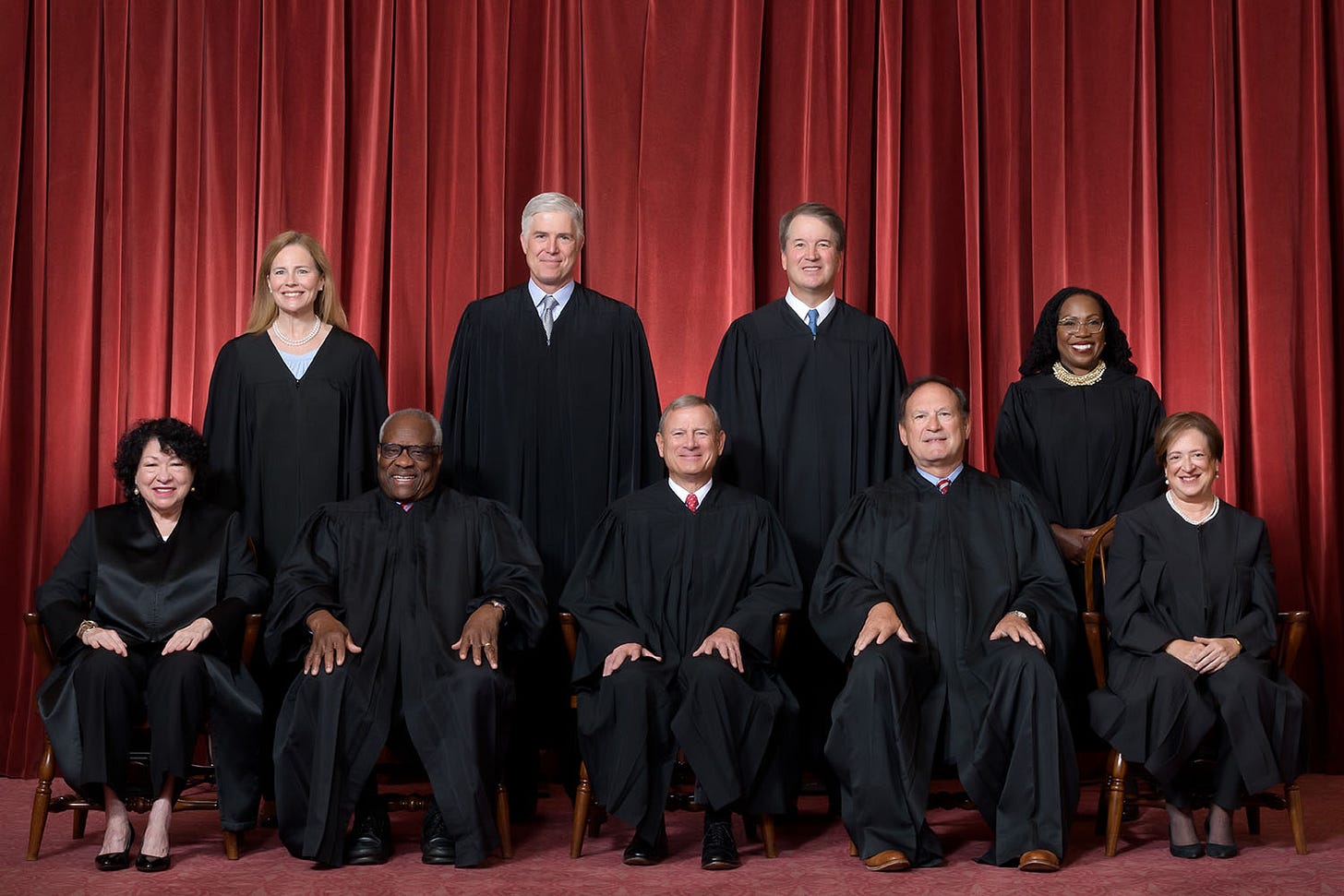Ethics, recusal, and stability at the Supreme Court
Increased scrutiny on the court is doing exactly what it should do: Leading people to speak up about cases in which a justice’s “impartiality might reasonably be questioned."

As the justices of the U.S. Supreme Court prepare to return to the bench next month, they continue, in varying degrees and as an institution, to face questions about the path they will take — both ethically and ideologically.
The instability of the court as an institution and the instability unleashed by its decisions have rippled out across the country. We have watched that over the past few terms. This term appears to be starting off no different.
The summer has involved serious questions about whether the justices should re-examine their recusal standards. Reports here and elsewhere have raised questions about whether Justice Samuel Alito should recuse himself from the wealth tax-related case of Moore v. United States — he said he will not — and whether Justice Clarence Thomas should recuse himself from the case addressing the future of the administrative state, Loper Bright Enterprises v. Raimondo.
In both, a justice’s out-of-court involvement with wealthy, conservative interests — Alito’s ongoing relationship with David Rivkin, a well-known conservative who co-authored opinion-page interviews with Alito1 at the Wall Street Journal and is serving as a lawyer for the Moores, and Thomas’s longstanding relationship with the Koch brothers, whose network of groups include lawyers to Loper Bright Enterprises — are at issue.
If one reads the federal recusal statute at its most direct, it’s pretty easy to make an argument that they should sit out.
“Any justice, judge, or magistrate judge of the United States shall disqualify himself in any proceeding in which his impartiality might reasonably be questioned,” the statute reads.
The best responses given by supporters of both essentially boil down to the idea that the situations just aren’t unusual enough to merit recusal. In other words, the best-case scenario is an argument that everyone does it. That is not, as I’ve refuted as to Alito’s rejection of recusal requests, necessarily true. Their scenarios are extreme examples that have no reported equivalent situations among the practices of the other current justices. (The other main response relates to the justices’ “duty to sit,” which I’ve discussed before and believe is misused by at least some of the current court to justify sitting when recusal is appropriate.)
Even if the situations are comparable to past justices’ involvement with outside interests — some point to both Antonin Scalia and Ruth Bader Ginsburg’s actions when they were justices — that’s no answer, either. Past arguably inappropriate intermingling of outside interests with court interests doesn’t excuse current intermingling.
Increased scrutiny on the court is, on this front, doing exactly what it should do: Leading people to speak up about cases in which a justice’s “impartiality might reasonably be questioned.”
When that occurs, real examination — and not Alito’s four-page, weakly evidenced dismissal — must occur, with appropriate action. It’s more than that, though. Bigger-picture re-examination also must occur, with appropriate action.
Before I go on, and just to be clear: I am very much in support of stronger proposals, including legislative ones, to address these issues more concretely and believe the Senate Judiciary Committee should, in the meantime, be taking more aggressive steps — and have written as much many times here and elsewhere. I also strongly believe one of the most important steps is aggressive coverage and treatment of the court like any other government body. For these purposes, though, I’m looking at what the court itself could — and should — do now if it wishes to increase stability instead of provoking instability.2
As Justice Elena Kagan argued just last week, the adoption of a formal code of conduct for the justices “would, I think, go far in persuading other people that we were adhering to the highest standards of conduct.“
That’s true, but only insofar as the justices — all of them — adhere to it and the standards would actually change what’s happening at the Supreme Court. If the standards allow a justice to speak privately to donors of a hugely influential conservative advocacy network as a draw for those donors in an unreported trip and later hear a case brought by that network’s lawyers or use a lawyer who practices before the court to craft his public relations narrative in an influential conservative newspaper and then hear a case brought by that lawyer, I’m not sure that people are going to be persuaded of much of anything.
And if they aren’t — if we aren’t — then the court’s ability to do its job is going to continue to be hamstrung.
In addition to the big cases the court has already granted for this term and the cases on the horizon, there are also the various Trump prosecutions and upcoming 2024 election cases — not to mention the unknowns — that will make their way to the justices in the near future.
If the justices can’t create an environment in which people believe that ethics matter to the justices, the Supreme Court could quickly be faced with the question of what happens when a group of people — or a state, or a certain presidential candidate — say that its interpretations of law don’t matter to them.
We’re already seeing Alabama push right up against that wall.
The question now, in the Alabama case most immediately but also for the ethics questions faced by the court, is whether Chief Justice John Roberts and the eight associate justices — or at least a healthy majority of them — are going to assert a principled stand in support of stability.
Now is not the time for a backwards-looking ethics policy that uses loose standards of the past to establish the standards the justices are going to use to try and reassert their legitimacy in a troubled time.
That will just guarantee that questions, and instability, will fester.
Now is the time for an aggressive ethics policy — that includes sensible recusal rules — to be agreed to, adopted, and enforced by the justices. And it should be put in place by time the justices return to the bench on Oct. 2. Anything less will leave the court, and the country, on the wrong path.
Correction: Alito’s status as the interview subject was incorrectly identified as having been Thomas initially.
This paragraph was added after initial publication.




Chris,
I want to compliment your judicial writing and specifically your SC related writing. Due to your reported tens of thousands of subscribers puts your SC writing in a unique position. Your opinions matter and the evidence you use reporting truth to power is effective. Please continue to report and encourage our SC to be the third branch of government our founders aspired it to be. All that seems to be lacking on the SC side is the will to succeed. Golden handcuffs are beautiful to looking in the mirror of the mind but mutilate justice in the mind of the masses.
I don't trust them to self-regulate appropriately